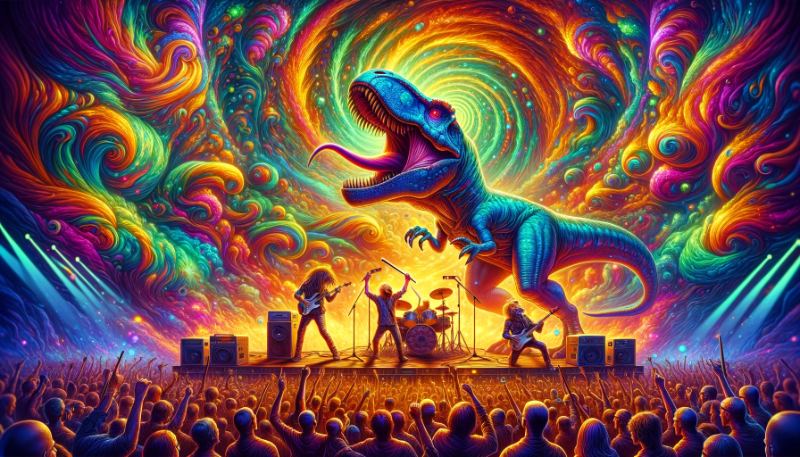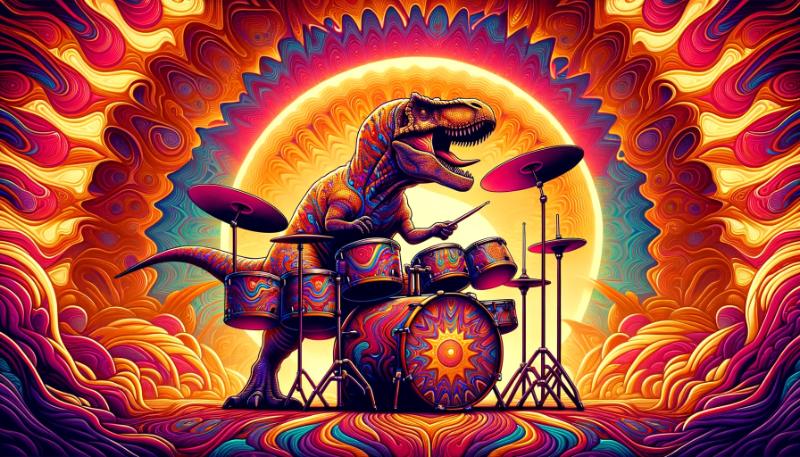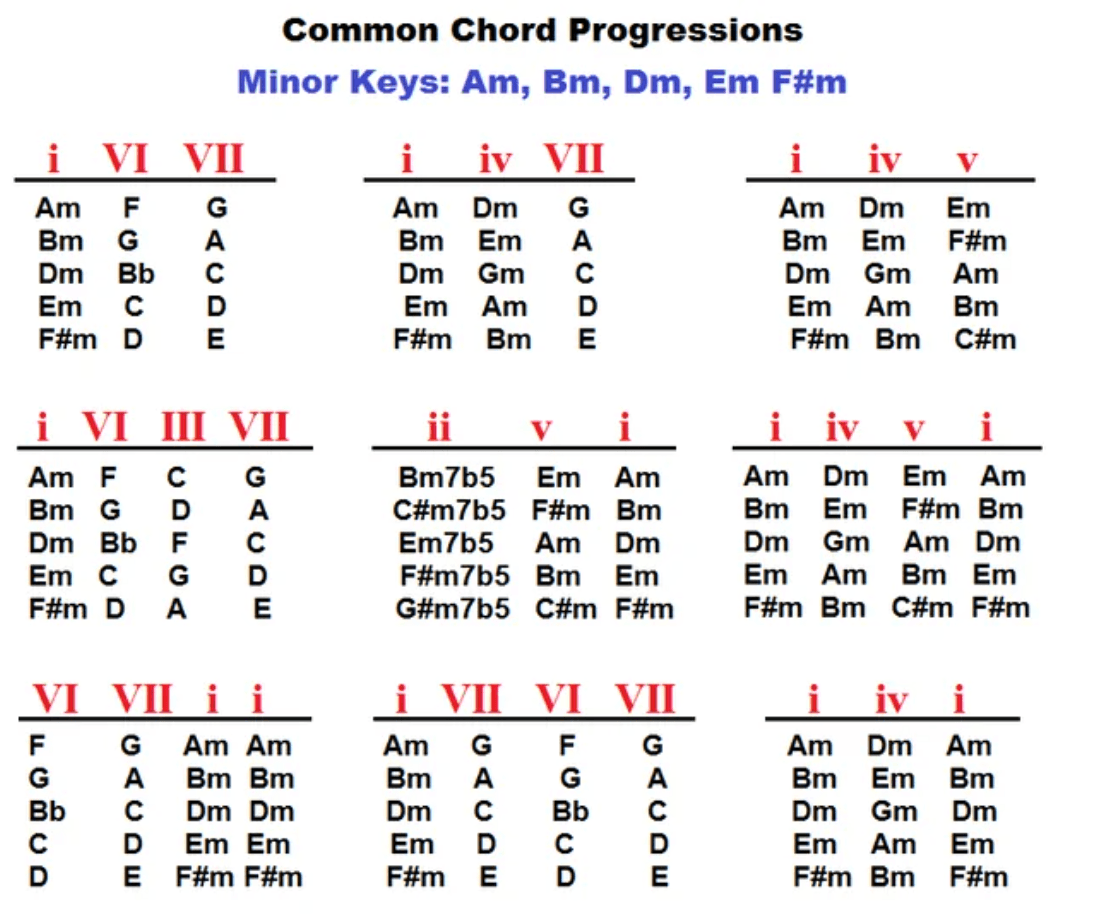The music industry is on the brink of a transformative era as AI in music continues to evolve. From creating new soundscapes to reshaping music distribution, AI is the new maestro in the symphony of the future!

Embracing the AI Revolution in Music
As we look towards 2025 and beyond, the role of AI in music is not just a futuristic concept; it's a present reality shaping our artistic expression. With tools like Empress, musicians and enthusiasts are witnessing a transformation in how music is created, produced, and experienced.
This evolution, powered by AI in Music, brings a symphony of technology and creativity to our fingertips.
In this article, we'll explore the emerging trends and predictions that define the future of audio AI tools and audio production, revealing how AI music tools are not replacing artists but empowering them with unprecedented creative capabilities.
Trend #1: The New Composer’s Assistant
Artificial Intelligence is radically changing the music production landscape, evolving from a mere tool to a powerful collaborative force. As AI continues to advance, it's becoming increasingly essential for both music creation and distribution.
The burgeoning field of AI music generators and tools is not only simplifying the music-making process but also democratizing it, making it accessible to a broader audience.
Democratization of Music Production
One of the most significant impacts of AI in music is its ability to break down barriers that once made music production a privilege of the few.
Platforms like Mubert enable users, irrespective of their musical background, to craft personalized soundscapes effortlessly.
This marks a shift towards more inclusive and accessible music creation, allowing anyone to engage in the process without the need for extensive knowledge or expensive equipment.
Enhancing Creativity and Efficiency
AI tools in music are not just about accessibility; they're also about enhancing creativity and efficiency. They offer new ways for artists to experiment and significantly reduce the time spent in the music production process.
By analyzing and understanding patterns in track compositions, these tools can generate new music, learn unique patterns, and assist producers in creating innovative works.
This aspect of AI serves as a creative partner, providing artists with a plethora of options and suggestions that they might not have considered otherwise.
The Future of AI in Music Composition
As AI continues to evolve, it is expected to play an even more significant role in music composition and production. This technology is not here to amplify creativity and provide them with tools to explore new musical territories.
The future of music composition with AI looks promising, with AI becoming an indispensable part of the creative process, offering ease of access, affordability, and a new era of license-free music creation.
Trend #2: Social Harmony: Music Meets Media
The year 2025 will mark a pivotal moment in the music industry, with social media platforms forecasted to overtake traditional streaming services as the primary source of revenue.
This shift signifies a profound transformation in the music landscape, driven by the increasing influence of platforms like Meta, TikTok, and Snap.
Emergence of a New Revenue Model
Previously, income from social media collaborations was a minor contributor to the music industry's financial structure.
The revenue from collaborations between music labels and social media platforms is expanding swiftly, highlighting a transformation from what was once a challenging relationship to a fruitful and lucrative partnership.
This shift is primarily influenced by the escalating role of user-generated content, now a central element in how music is accessed and shared.
The Convergence of Music and Digital Entertainment
The evolving relationship between music and social media mirrors a broader trend of convergence with various forms of digital entertainment, such as gaming and fitness.
These integrations are creating new opportunities for artists and music companies to reach audiences through diverse and interactive platforms.
A Blended Model for Music Consumption
The industry is moving towards an innovative model that blends elements of social media, music streaming, and interactive experiences. This model reflects a more integrated approach to music consumption, where the boundaries between different forms of digital media are increasingly blurred.
As major music labels deepen their connections with social platforms, as seen in deals like Sony Music's partnership with TikTok, a new era of music marketing and distribution is emerging, characterized by greater accessibility and engagement with audiences.

Trend #3: Blockchain: Fair Play in Music
Blockchain technology stands at the brink of transforming the music industry, especially in managing rights and distributing royalties. In the traditional model, the chain from artists to consumers was cluttered with intermediaries, causing delays and inefficiencies in royalty disbursement. Blockchain technology offers a solution by simplifying this process, eliminating the need for these middlemen.
Smart Contracts for Fair Compensation
A pivotal innovation in blockchain for the music industry is the implementation of smart contracts. Functioning on the blockchain, these contracts are designed to automate the management of music rights, providing a transparent and equitable system of compensation for all involved parties.
Smart contracts can be programmed to automatically distribute royalties to contributors like songwriters, producers, and performers, based on pre-defined rules.
This automation ensures that everyone involved in the music creation process is compensated fairly, and it reduces the potential for disputes over payments.
Enhancing Transparency
Blockchain offers a transparent and tamper-proof record of all music transactions. Blockchain ensures a transparent record of all transactions related to music rights ownership and royalty distribution.
This capability is crucial in minimizing conflicts and guaranteeing equitable payment. In the blockchain system, every transaction is documented on a publicly accessible and verifiable ledger, introducing enhanced transparency to the music industry.
Engaging Fans in the Music Creation Process
Blockchain technology also opens up new avenues for fan engagement in music. Blockchain-based music platforms can allow fans to participate directly in the music creation process.
This could include crowdfunding new projects, voting for favorite tracks, or receiving rewards in the form of tokens or digital assets.
Such engagement not only fosters a closer connection between artists and their audience but also introduces innovative ways for fans to be a part of the music creation journey.
Trend #4: Immersive Experiences: Transforming Live Music with VR and AR
The future of live music is being reshaped by a new era of immersive experiences with the integration of Virtual Reality (VR) and Augmented Reality (AR). This innovation in music blends live performances with digital interactivity with the aim to deepen the connection between artists and audiences.
The use of VR and AR in music, from interactive music videos to collaborative creation, has begun to enhance audience experiences significantly. Concerts, being highly user-oriented, are seeing an increasing incorporation of these technologies, aiming to maximize interactivity and user engagement.
Virtual Concerts: A New Realm of Interaction
In virtual concerts, the goal is to immerse attendees completely. This is achieved through environments where people interact as avatars and live chat, enhancing the social aspect of attending concerts.
For example, the Billie Eilish VR concert offered options to attend in social or solo modes, allowing users to control their experience. Such features are designed to replicate and enhance the concert-going experience from the comfort of one’s home.
Enhancing User Experience with Technology
Studies are exploring ways to maximize the VR concert experience, such as allowing users to manipulate movement in the VR sphere and incorporating Haptic Technology for a more immersive feel.
These advancements aim to increase user engagement and provide a more holistic experience, combining sensory elements like scent to recreate the concert atmosphere virtually.
AR in Live Venues
AR is being used in live venues to enhance the concert experience. It can help locate friends or amenities in crowded arenas and enable individual interactions with artists.
For instance, AR technology at a Maroon 5 concert allowed attendees to engage in a sing-along karaoke when pointing their phone at the stage.
The Pandemic's Role in Accelerating AR/VR Adoption
The pandemic accelerated the adoption of AR and VR in music, providing artists a way to engage with fans virtually.
These technologies have not only created additional income streams for artists but also facilitated charitable initiatives through virtual concerts.
The Growing Investment in AR/VR Technologies
With significant investments from big tech companies like Apple, the AR and VR market is projected to grow substantially.
The acquisition of companies like NextVR and the development of products like Apple glasses indicate a strong belief in the potential of these technologies to revolutionize the live music experience.
Immersive experiences through VR and AR are set to revolutionize the live music scene, offering more interactive, personalized, and engaging ways for artists to connect with their audience.
This trend represents a significant shift in the live music business model, placing equal value on fan experience and artistic expression.
Trend #5: Personalization at Play: The Rise of Algorithmic DJs
The role of AI in music personalization is reaching unprecedented heights, transitioning from traditional playlist curation to more nuanced and responsive forms.
Algorithms are now capable of curating playlists that reflect not just genres or artist preferences, but also moods, times of day, and even weather conditions, offering a more personalized listening experience.
Spotify's AI DJ: Pioneering Personalized Music Experiences
Spotify, the largest global music streaming service, has been at the forefront of integrating AI into its operational and logistic efforts.
This is exemplified by their AI DJ, a personalized guide that knows users' music tastes so well it can select tracks for them. This AI program delivers a curated lineup of music with commentary about the tracks and artists in a realistic voice.
Spotify's implementation of AI, particularly machine learning, extends to analyzing consumer listening behavior and pattern recognition, leading to highly personalized music recommendations.
Also: Check out these Top 5 AI DJ Tools that are Revolutionizing the Decks!
AI's Role in Music Composition and Distribution
AI is also becoming a key player in music composition. Machine learning is used to generate new music fragments or ideas, which human composers then combine into complete pieces.
This innovation provides more accessible ways for artists to produce music and allows a broader range of artists to enter the industry.
Furthermore, music released on Spotify is introduced through AI algorithms to be marketed toward listeners, showcasing AI's growing influence over the entire music production and distribution process.
Enhancing User Engagement
Spotify’s AI advancements, such as the DJ program, are designed to attract and retain users seeking a more relaxed listening experience.
This feature, which can’t be quickly replicated by competitors, differentiates Spotify and potentially disrupts the streaming industry. It's an example of how AI-based enhancements are increasingly focused on user-first experiences.
Is AI Really Useful?
The role of AI in democratizing music creation is a striking example of its utility. Traditionally, producing music involved substantial costs, requiring expensive equipment and access to professional studios.
This economic barrier restricted many talented individuals from exploring their musical aspirations. However, AI has begun to dismantle these barriers, making music production more accessible to a wider audience.
Simplifying Music Creation for All
AI tools in music production have transformed the process into a more accessible and user-friendly experience. These tools simplify complex tasks such as mixing, mastering, and even composing, which previously demanded significant technical expertise. Now, with minimal knowledge, individuals can produce quality music, effectively democratizing the art form. This ease of access provided by AI tools ensures that economic status no longer dictates one's ability to create music.
Fostering Diversity and Innovation
Furthermore, AI in music production is not just about accessibility; it's also about fostering diversity. The variety of sounds and styles made available by AI tools allows for a fusion of cultural influences, enriching the music industry with innovative and diverse compositions.
This aspect of AI not only democratizes music production but also promotes a cultural melting pot, enhancing the global music scene.
A Transformative Force
In essence, AI’s impact in the music industry extends far beyond mere utility. It acts as a transformative force, breaking down economic barriers and simplifying the music creation process.
AI is enabling a new wave of artists from varied backgrounds to contribute to the rich tapestry of global music, making it an indispensable tool in the modern music landscape.
Join the Empress Movement: Empower Your Sound!
Dive into the future of music with Empress! Unleash your creative potential and join a community passionate about innovation and expression. Empress is not just a platform; it's a revolution in music creation. Be part of this transformative journey. Explore, create, connect – Empower Your Sound with Empress today!
FAQs: Future AI Trends in Music
Q1: How is AI changing the way music is composed?
AI is transforming the process of composing music by serving as a digital aide, providing innovative ideas and improvements to make the composition process more efficient.
Q2: How does combining music with social media affect the industry?
Merging music and social media is opening fresh channels for interaction between artists and audiences, reshaping how music is distributed and enjoyed.
Q3: How is blockchain technology influencing fair play in the music industry?
Blockchain is revolutionizing music rights management and compensation, ensuring fair and transparent royalty distribution and copyright control.
Q4: In what ways are VR and AR transforming live music experiences?
Virtual and Augmented Reality are bringing immersive and interactive dimensions to live music, offering audiences novel and engaging concert experiences.
Q5: What role do algorithmic DJs play in personalizing music experiences?
Algorithmic DJs use AI to curate personalized music playlists, adapting to individual tastes and preferences, thereby enhancing the listening experience.
Follow the future of music with Empress. Check out our blog to learn how you can effectively use these AI music tools.


